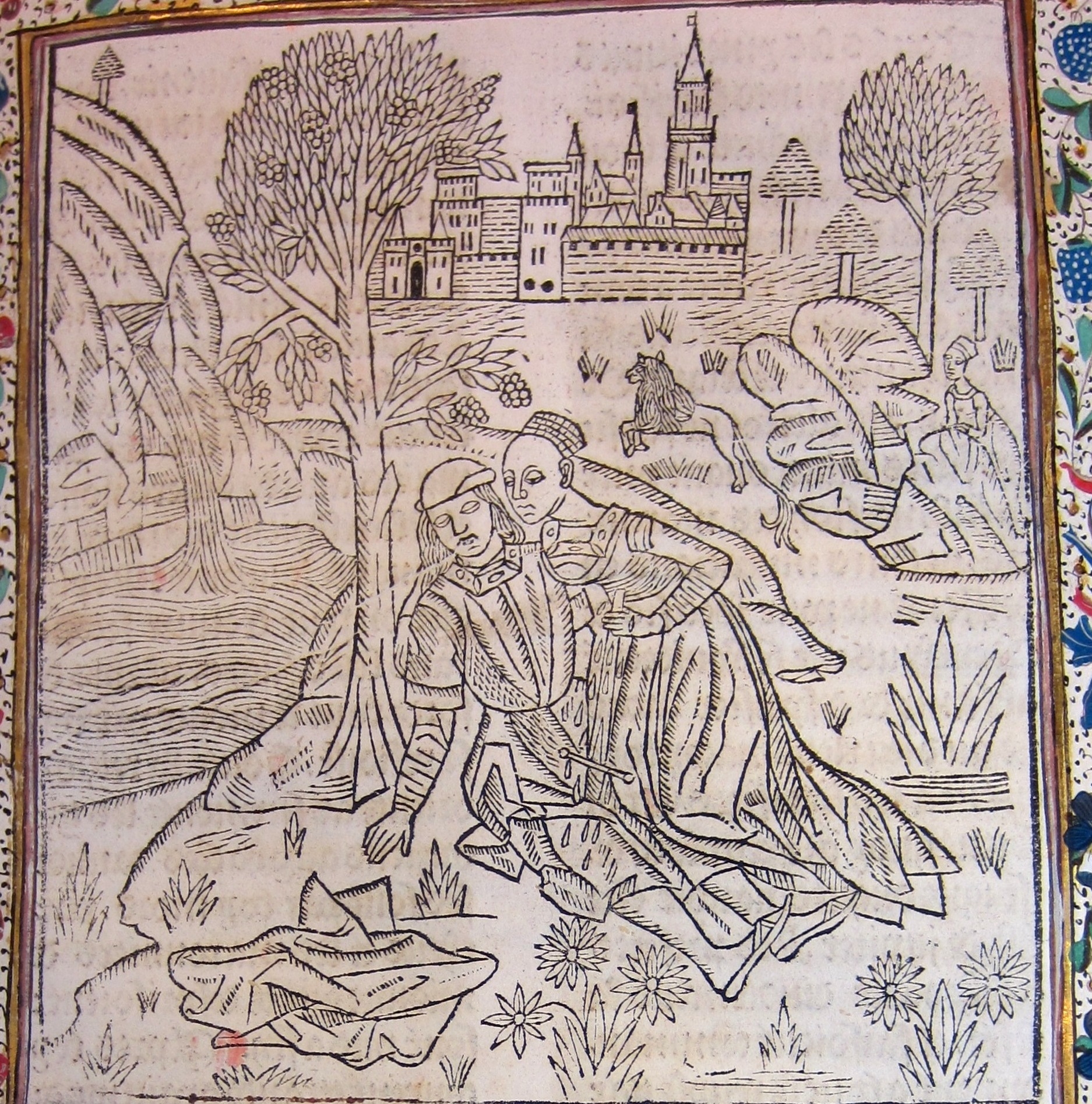Pyramus et Thisbe, iuvenum pulcherrimus alter, 55
altera, quas Oriens habuit, praelata puellis,
contiguas tenuere domos, ubi dicitur altam
coctilibus muris cinxisse Semiramis urbem.
... lateantque sub umbra
arboris: arbor ibi niveis uberrima pomis,
ardua morus, erat, gelido contermina fonti. 90
.... venit ecce recenti
caede leaena boum spumantes oblita rictus,
depositura sitim vicini fontis in unda;
quam procul ad lunae radios Babylonia Thisbe
vidit et obscurum timido pede fugit in antrum, 100
dumque fugit, tergo velamina lapsa reliquit.
...ut vero vestem quoque sanguine tinctam 107
repperit, "una duos" inquit "nox perdet amantes,
e quibus illa fuit longa dignissima vita;
quoque erat accinctus, demisit in ilia ferrum,
nec mora, ferventi moriens e vulnere traxit. 120
sed postquam remorata suos cognovit amores,
percutit indignos claro plangore lacertos
et, laniata comas amplexaque corpus amatum,
miscuit, et gelidis in vultibus oscula figens
"Pyrame," clamavit...
dixit et, aptato pectus mucrone sub imum, 162
incubuit ferro, quod adhuc a caede tepebat.
